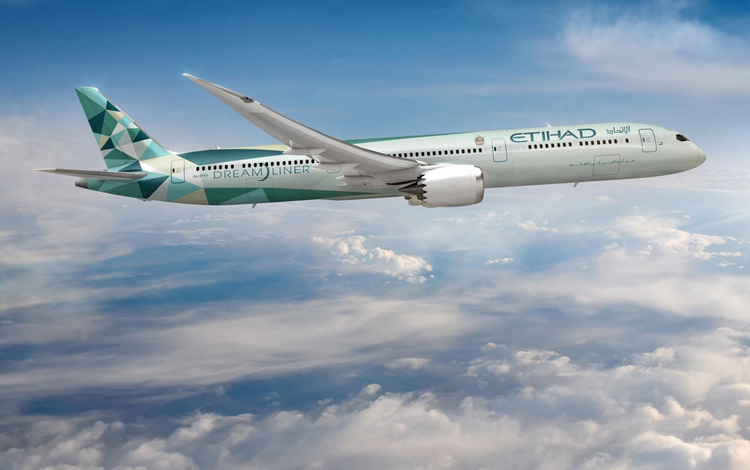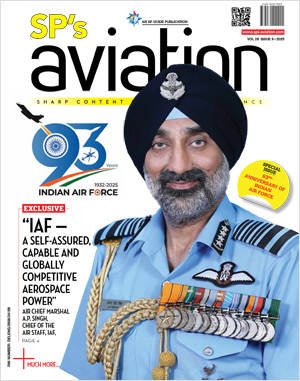INDIAN ARMED FORCES CHIEFS ON OUR RELENTLESS AND FOCUSED PUBLISHING EFFORTS

The insightful articles, inspiring narrations and analytical perspectives presented by the Editorial Team, establish an alluring connect with the reader. My compliments and best wishes to SP Guide Publications.

"Over the past 60 years, the growth of SP Guide Publications has mirrored the rising stature of Indian Navy. Its well-researched and informative magazines on Defence and Aerospace sector have served to shape an educated opinion of our military personnel, policy makers and the public alike. I wish SP's Publication team continued success, fair winds and following seas in all future endeavour!"

Since, its inception in 1964, SP Guide Publications has consistently demonstrated commitment to high-quality journalism in the aerospace and defence sectors, earning a well-deserved reputation as Asia's largest media house in this domain. I wish SP Guide Publications continued success in its pursuit of excellence.
- A leap in Indian aviation: Prime Minister Modi inaugurates Safran's Global MRO Hub in Hyderabad, Calls It a Milestone
- All about HAMMER Smart Precision Guided Weapon in India — “BEL-Safran Collaboration”
- India, Germany deepen defence ties as High Defence Committee charts ambitious plan
- True strategic autonomy will come only when our code is as indigenous as our hardware: Rajnath Singh
- EXCLUSIVE: Manish Kumar Jha speaks with Air Marshal Ashutosh Dixit, Chief of Integrated Defence Staff (CISC) at Headquarters, Integrated Defence Staff (IDS)
- Experts Speak: G20 Summit: A Sign of Global Fracture
FIA Connect

Sustained efforts needed for sustainable flying
Aviation industry cannot afford to sideline environmental emissions, despite the pandemic.

Environmental importance has been on the forefront of discussions especially since the last few years irrespective of any industry. Aviation industry has especially seen a rise in awareness when it comes to steps being taken to take care of the environment at large. Sustainability is crucial and aviation industry has to take the leading role. With the same aim in mind, the FIA Connect too held a webinar session titled "Sustainability - a future of clean skies, financial and human stability" where the panelists agreed that when it comes to issues surrounding sustainable aviation there is not just one single solution that can be worked with.
The panelists also brought into focus that the aviation industry remains one of the hardest hit industrial sector by the pandemic. “Obviously Covid dominates the aviation agenda at the moment. But in no way does it overshadow the work that was going on and the commitments we previously made to sustainability," said Etihad Aviation Group CEO Tony Douglas. “Among those efforts is work with the Abu Dhabi National Fuel Company and its work in developing SAF derived from the salcornia plant, which can grow in extraordinarily hostile environments such as deserts and salt marshes. However, while such work is promising, the economics aren’t at breakthrough level and I believe that the industry needs to bring in government and broader industry players to find ways to support and further develop such work,” Douglas added.
Obviously Covid dominates the aviation agenda at the moment. But in no way does it overshadow the work that was going on and the commitments we previously made to sustainability," said Etihad Aviation Group CEO Tony Douglas.
The panel discussion touched upon sustainable fuel requirements, technologies, measures, the carbon footprint, etc all that contributes for a cleaner sky.
“First of all a relentless pursuit of efficiency in airplane/engine combinations, secondly the necessity to scale up sustainable aviation fuels to the levels required to really make a difference, thirdly to start exploring novel technologies and new propulsion methods” are thethree pillars on which the industry’s de-carbonisation ambitions have been suspended, explained Paul Stein, chief technology officer at engine maker Rolls-Royce. He further added that to achieve its stated goals of reductions in carbon emissions, the industry needs approximately 30 percent improvement in whole fleet efficiency between now and 2050. “Most of those technologies are however not suited, at least in the short to medium timeframe, to power longer-haul aircraft, but I expect as they mature in the e-VTOL, UAM, and short-haul sectors, such technology will eventually spill over into regional and larger aircraft,” Stein noted. He also informed that his company has been working with the world’s major oil companies to increase the volume of sustainable aviation fuel (SAF) production, but also pointed to the exploration of nuclear power as an energy source for producing e-fuels, which could someday power electric aircraft.
The panelists also discussed about other technologies that can offer improvements to operators including Rolls-Royce’s Ultrafan engine under development with Airbus, which incorporates an enormous fan that is very quiet as well as fuel-efficient.
“First of all a relentless pursuit of efficiency in airplane/engine combinations, secondly the necessity to scale up sustainable aviation fuels to the levels required to really make a difference, thirdly to start exploring novel technologies and new propulsion methods” are the three pillars on which the industry’s de-carbonisation ambitions have been suspended, explained Paul Stein, chief technology officer at engine maker Rolls-Royce.
As the airline operating one of the world’s largest fleets of Boeing’s fuel-efficient 787 Dreamliner, Etihad Aviation Group represented the commercial airline sector during the panel where Douglas pointed to the environmental learning value of its “Greenliner” 787, which entered service earlier this year. “The twinjet was delivered with a fuel load of 30 percent SAF and is being used in partnership with the airframer to explore methods of optimisation. In one flight earlier this year from its base in Abu Dhabi to Dublin, using optimised route planning and more efficient airspace management such as continuous ascents and descents, the aircraft shaved 40 minutes off the flight, which equated to a savings of three tons of CO2,” informed Douglas. The two companies plan to continue that partnership starting in August with the delivery of Etihad’s latest 787-10, which will be used as an eco-demonstrator in a multi-week program to test innovative strategies.
UK transport secretary Grant Shappsspoke about the recently introduced measure of calling for the creation of the Jet Zero Council, to ensure that the British government is fully behind the measures required to achieve zero carbon emissions. Among them are ATC modernisation, which could help cut carbon emissions without even taking into account new fuels or new systems. “With the algorithms we have these days, the aircraft is coming over the Atlantic, the computer slows it down to whatever speed, it comes in and it gets to its slot to the minute and flies in. It literally isn’t rocket science and it's quite literally possible today,” said Shapps.
Tom Parsons, Air BP’s low carbon commercial development manager, further suggested that economic bailout programs offered currently or in the future to airlines attach green conditions, locking them into a low-carbon agenda for any subsequent growth. Because the industry is currently experiencing so much pain due to the Covid crisis, he cautioned that any such conditions be applied thoughtfully. Air BP has been supplying SAF since 2010 and to date has supplied 16 airports and 20 customers globally. The company’s ambition is to reach net zero by 2050 or sooner.





